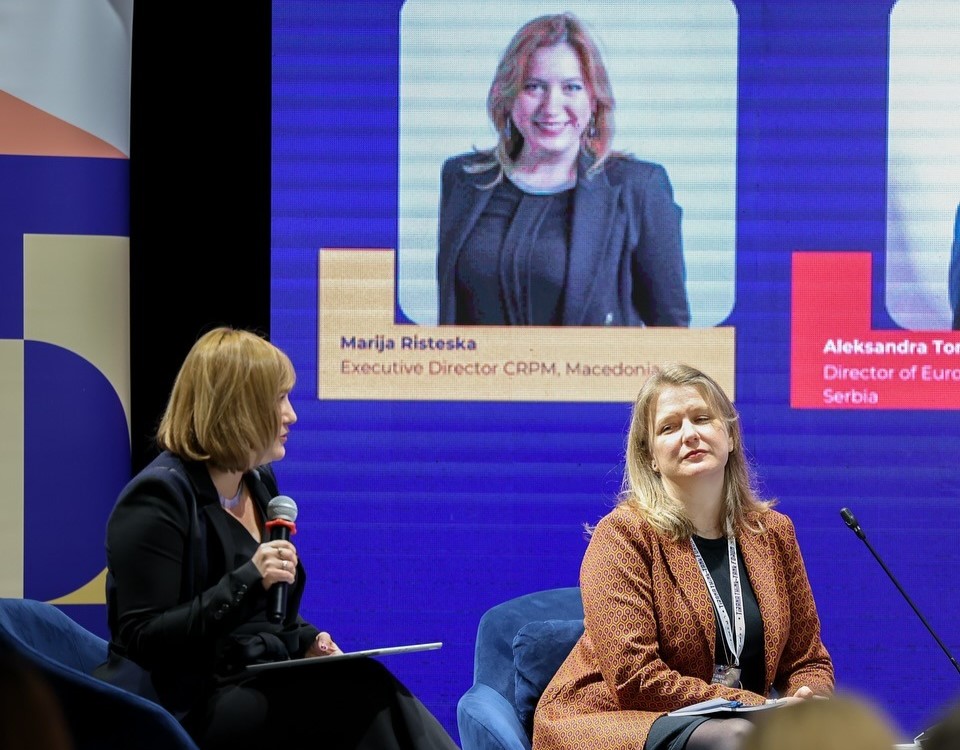The Tirana Think Tank Forum (TTF), held from November 13th to 15th. 2024, as part of the SMART Balkans project, brought together think tank organizations from across the Western Balkans to promote collaboration, exchange best practices, and develop innovative strategies for addressing the region’s political challenges.
The forum commenced with an opening address by Dajana Cvjetković, Program Manager of the SMART Balkans Project, who outlined the event’s overarching concept and objectives. The session “Speed Date & Think Tanks’ Problem Box” provided participants the opportunity to discuss internal and organizational challenges they face in their daily operations. This was followed by the “Spell & Work it Out” panel, where these key challenges were examined. Panelists addressed concerns ranging from funding and staff retention to adapting to AI and maintaining organizational independence.
The second day of the Think Tank Forum in Tirana continued with a closed-door session titled “Think Tanks and Policy Research – How Supportive is the Donor Environment?” In this session, think tanks and donors engaged in a discussion on how to strengthen support for long-term policy research, rather than focusing solely on short-term initiatives. Experts emphasized the importance of building strong, sustainable relationships with donors for influential fundraising. Tailored strategies, commitment, and clear documentation on what works—and what doesn’t—are crucial, especially in challenging political environments.
The plenary session on “Think Tanks and Policy Development in Hybrid Regimes” explored the pressures faced by think tanks working in hybrid regimes, where political processes appear open but are subtly influenced by autocratic practices. Panelists, including Arben Fetai, Deputy Prime Minister of N. Macedonia for Good Governance; Arbian Mazniku, Minister of State for Local Government in Albania; and Lana Prile, Member of the Bosnian Parliament, discussed the value of think tanks in providing essential expertise and reports that shape policy. Strengthening the links between think tanks, civil society, and political actors is critical for effective governance and advancing EU integration efforts.
The third day of the forum featured a plenary session moderated by Marija Risteska, Executive Director of CRPM, N. Macedonia, focusing on the vital role of think tanks in strengthening democratic systems. The session titled “Think Tanks’ Relevance in a Crisis of Liberal Democracy” emphasized the importance of research-based analysis in understanding political crises, particularly in an era marked by growing public skepticism and hybrid governance. Experts noted that think tanks must adapt to make complex research more accessible to the public while ensuring it has a tangible impact on policy decisions.
The discussion highlighted the importance of engaging youth, encouraging regional knowledge sharing, and maintaining consistent collaboration with donors as essential components for the future growth and influence of think tanks.


